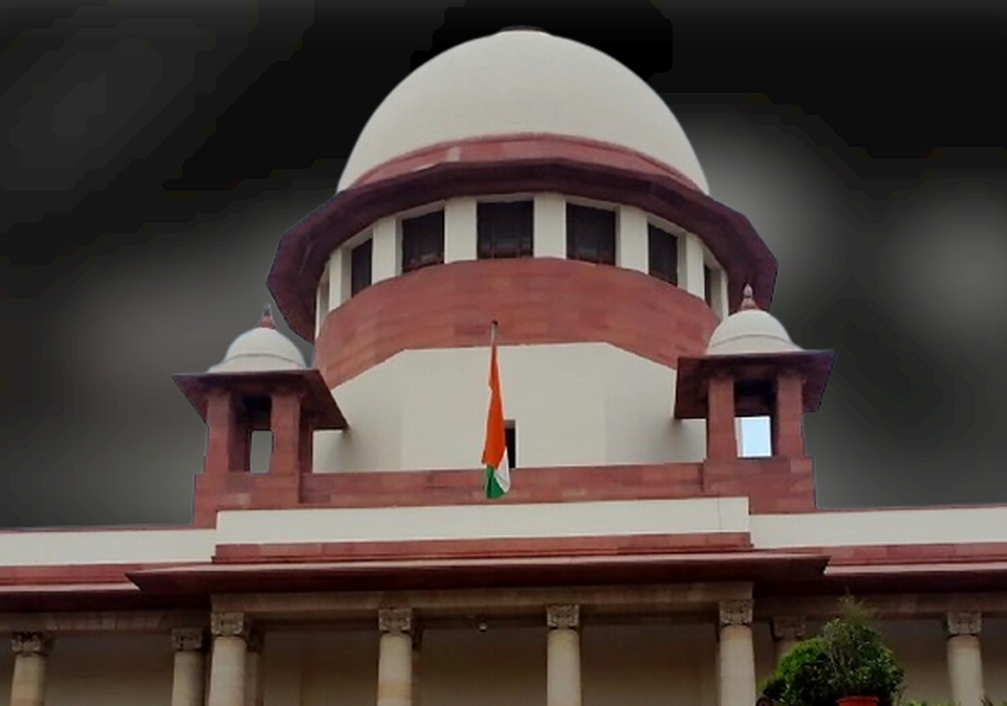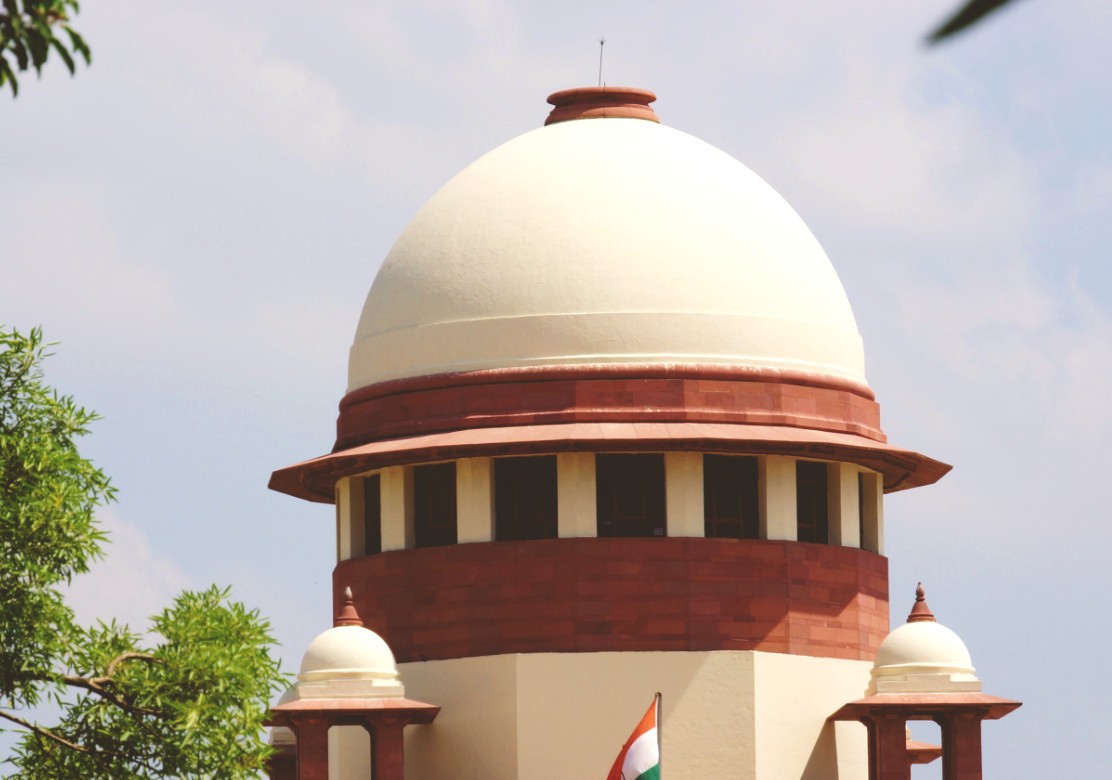Top Court confirms CESTAT’s order holding Jindal Drugs eligible for availing CENVAT credit, says process of re-labelling undertaken by company in its factory amounts to ‘manufacture’
Justices Abhay S. Oka & Ujjal Bhuyan [30-04-2024]

Read Order: COMMISSIONER OF CENTRAL EXCISE BELAPUR v. JINDAL DRUGS LTD [SC-CIVIL APPEAL NO. 1121 OF 2016]
LE Correspondent
New Delhi, May 2, 2024: While dismissing the appeal of the Revenue Department and ruling that the process of re-labelling amounts to ‘manufacture’, the Supreme Court has affirmed the decision of the CESTAT holding Jindal Drugs Ltd. eligible for availing CENVAT credit of the duty paid by its Jammu unit.
The Division Bench of Justice Abhay S. Oka & Justice Ujjal Bhuyan was considering an appeal by the revenue under Section 35L (1)(b) of the Central Excise Act, 1944 ( Central Excise Act) against the order passed by the Customs, Excise and Service Tax Appellate Tribunal, West Zonal Bench at Mumbai (CESTAT).
By the impugned order, the CESTAT allowed the appeal filed by the respondent holding that as per Note 3 to Chapter 18 of the Central Excise Tariff Act, 1985, the activity of labelling amounted to manufacture and hence the activity of the respondent fell within the ambit of the definition of manufacture as per the said Note. Therefore, the respondent was eligible for availing the cenvat credit of the duty paid by its Jammu unit and was also eligible for rebate on the duty paid by it while exporting its goods. CESTAT further held that there was no suppression by the respondent and, therefore, the extended period of limitation was not available to the department (revenue).
The Respondent, in this case, has been engaged in the business of exporting cocoa butter and cocoa powder. Its factory at Jammu manufactures cocoa butter and cocoa powder. Respondent has another unit located at Taloja in the State of Maharashtra. Cocoa butter and cocoa powder manufactured at Jammu are received by the respondent’s unit at Taloja. In the Taloja unit, respondent affixed two labels on two sides of the packages of the said goods received from its Jammu factory and cleared the same for export on payment of duty and claimed rebate of the duty paid on the exported goods. Further, respondent availed cenvat credit of the duty paid on those two goods at the time of clearance from Jammu. The Respondent also imported cocoa butter and cocoa powder from China and Malaysia, receiving the same in its factory at Taloja.
The factory of the respondent at Taloja was visited by officials of the appellant and it was found that the respondent was only putting labels on the goods brought from Jammu as well as on the imported goods. As the labels were already fixed on the boxes containing the two goods, additional labels affixed by the respondent did not amount to manufacture since affixing of additional label did not enhance the marketability of the goods which were already marketable.
In such circumstances, appellant issued show cause cum demand notice to the respondent to show cause as to why the activity of labelling undertaken by the respondent on the product cocoa butter received from the Jammu unit and also on the imported goods should not be held as activities not amounting to manufacture in terms of Note 3 to Chapter 18 of the Central Excise Tariff Act. It was alleged that respondent had wrongly availed cenvat credit amounting to Rs 23,02,53,752.00 for the period from June, 2008 to July, 2012 and rebate claims amounting to Rs. 13,22,30,368.00 for the period from June, 2008 to July, 2011.
It was the case of the appellant that the activity undertaken by the respondent at its Taloja unit i.e. putting labels on the two sides of the cartons which were already labelled at Jammu, couldn’t be said to be a manufacturing activity. Note 3 to Chapter 18 of the Central Excise and Tariff Act couldn’t be read in a manner to hold that the activity of labelling amounted to manufacture.
The main issue before the Bench was whether the activity of labelling carried out by the respondent amounts to manufacture.
At the outset, it was clarified that the Central Excise Act which has since got subsumed in the Central Goods and Services Tax Act, 2017 was enacted to provide for levy of central duties of excise on goods manufactured or produced in India and for matters connected therewith or incidental thereto. Therefore, the word manufacture includes any process which is incidental or ancillary to the completion of a manufacture product; any process which is specified in relation to any goods in the Section or Chapter notes of the First Schedule to the Central Excise Tariff Act as amounting to manufacture; or any process which in relation to the goods specified in the Third Schedule involves packing or repacking of such goods in a unit container or labelling or re-labelling of containers including the declaration or alteration of retail sale price on it or adoption of any other treatment on the goods to render the product marketable to the consumer.
The Bench referred to Chapter 18 of the Central Excise Tariff Act which deals with cocoa and cocoa preparations and has undergone amendment with effect from 01.03.2008. Note 3 now contemplates 3 activities. The composite activity of labelling or re-labelling of containers and repacking from bulk packs to retail packs has been split up into two activities i.e. labelling or re-labelling of containers is one and the other is repacking from bulk packs to retail packs. The other activity of adopting any other treatment to render the product marketable to the consumers remains the same. Therefore, Note 3, post amendment, as it exists today contemplates three different processes; if either of the three processes are satisfied, the same would amount to manufacture.
If any of the below mentioned three processes is satisfied then the same would amount to manufacture:
- labelling or re-labelling of containers; or
- repacking from bulk packs to retail packs; or
- the adoption of any other treatment to render the product marketable to the consumer.
Referring to the definition of manufacture in the Central Excise Act, the Bench opined that any one of the processes indicated in Note 3 to Chapter 18 of the Central Excise Tariff Act would come within the ambit of the definition of manufacture under Section 2(f)(ii) of the Central Excise Act.
“There is no factual dispute as to the activity carried out by the respondent at its Taloja unit. Whether the goods are brought from the Jammu unit or are imported, those are relabelled on both sides of the packs containing the goods at the Taloja unit of the respondent and thereafter, introduced in the market or sent for export. In terms of Note 3 to Chapter 18, this process of re-labelling amounts to manufacture”, the Bench held.
Thus, affirming the impugned order of CESTAT, the Bench dismissed the appeal of the Revenue.
Sign up for our weekly newsletter to stay up to date on our product, events featured blog, special offer and all of the exciting things that take place here at Legitquest.




Add a Comment